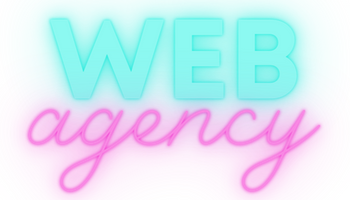In the evolving recruitment landscape, skills play a vital role in how individuals stand out and thrive within a competitive business environment. But what do the terms “hard skills”, “soft skills” and “mad skills”, which are increasingly resonating in job search circles, really mean? As recruiters refine their criteria to identify ideal candidates, a clear understanding of these concepts is crucial.
Hard skills are technical competencies. They embody the specific, measurable skills required for specific tasks, while “soft skills” relate to behavioral and relational skills, fundamental for teamwork and managing interactions. However, we should not underestimate the impact of “mad skills”, those unusual competencies derived from personal passions and hobbies. They can add a touch of uniqueness to a candidate.
This article dives deep into the heart of these concepts, exploring how they’intertwine to form a complete and attractive candidate profile. By understanding how to combine these skills, job seekers can confidently position themselves in a demanding job market, where versatility, communication and originality are the keys to success.
The article explores how these concepts intertwine to form a complete and appealing candidate profile.
Hard skills
Hard skills, also known as technical skills, form the cornerstone of professional expertise.
What are hard skills?
Hard skills represent technical and measurable competencies. They are acquired through education, training or experience. They encompass specific, concrete knowledge. For example, computer programming, mastery of foreign languages, mathematical skills and the use of specialized software.
These skills are generally easy to assess and quantify, which distinguishes them from behavioral skills or “soft skills”. Hard skills” are often an essential element for occupying a specific position. They are frequently listed on CVs to demonstrate an individual’s ability to perform technical tasks.
The 10 hard skills currently in demand
Here are the most sought-after hard skills :
Computer programming
The ability to write and understand programming languages is essential in many fields, from software development to data analysis. Companies are looking for candidates capable of creating technological solutions.
Data analysis
The skill to interpret and draw conclusions from massive data is invaluable. Professionals who master data analysis tools help companies make informed decisions.
Project management skills
The ability to organize, plan and manage projects effectively is in high demand. Employers value those who can bring projects to fruition, meet deadlines and allocate adequate resources.
Digital marketing skills
As marketing evolves to digital, knowledge of online marketing, including advertising on social networks and referencing, is crucial to promoting businesses and products.
Graphic design
The ability to create attractive graphics and striking visuals for online marketing is increasingly important. The same applies to visual communication.
Technical communication skills
Being able to explain complex concepts clearly and concisely is invaluable, especially in fields such as technology and engineering.
Foreign language skills
In an increasingly connected world, the ability to communicate in several languages opens up international business opportunities.
Engineering skills
Engineers have the technical skills to design, build and solve problems in a variety of fields, from civil engineering to software engineering.
Accounting and finance skills
Companies need professionals who understand accounting and financial principles to maintain sound financial management.
Mastery of specific software
Expertise in specific software used in particular industries, such as design, modeling or word processing tools, is often required for specialized roles.
These “hard skills” are in demand because they enable individuals to solve real-world problems, contribute to business growth and adapt to technological and professional developments.Top of formBottom of form
Soft skills
Soft skills are the key behavioral competencies for success at work. They encompass communication, empathy, critical thinking, and promote effective collaboration and problem solving. These qualities influence the way we interact, manage challenges and contribute to a positive working environment.
What are soft skills?
“Soft skills” refer to the behavioral and relational competencies that influence the way we’interact with others and handle professional situations. Unlike technical skills, they are not objectively measurable, but are just as crucial.
These skills encompass effective communication, empathy, problem-solving, critical thinking, leadership, and collaboration. Soft skills are essential for teamwork, managing conflict, adapting to change, and creating a harmonious work environment. They are increasingly sought after by employers for their impact on professional success and company dynamics.
The 8 soft skills currently in demand
Here are the most sought-after soft skills :
Effective communication
Knowing how to express ideas clearly, listen actively and convey information in an understandable way is essential for working in a team and interacting with customers.
Empathy
Understanding and sharing other people’s emotions helps build strong relationships, improve collaboration and resolve conflicts constructively.
Critical thinking
Evaluate and analyze information objectively to make informed decisions, solve problems and innovate in a complex professional environment.
Problem solving
Find creative and effective solutions to professional challenges using logical approaches and adapting to changing situations.
Collaboration
Work effectively with others by sharing ideas, negotiating and contributing positively to the’achievement of collective goals.
Time management
Organize tasks, prioritize activities and meet deadlines, which promotes productivity and project completion.
Flexibility
Adapt with ease to changes, new situations and unexpected challenges, demonstrating a capacity for adjustment and resilience.
Leadership
Guiding, motivating and inspiring others while making informed decisions and promoting the team’s development. Good leadership contributes to team cohesion and the achievement of organizational goals.
Mad skills
Mad skills, or exceptional skills, add a unique touch to traditional skills. Derived from passions and hobbies, they reflect an individual’s creativity and originality. These unusual skills add a singular dimension to a candidate’s profile, captivating the attention of recruiters looking for diversity and innovation.
.
What are mad skills?
Mad skills refer to exceptional, creative abilities that often emerge from hobbies or personal passions. Unlike technical skills, they are unusual and unique, bringing a touch of originality to an individual. Juggling unusual objects, solving complex riddles at exceptional speed or performing unusual artistic feats are examples of “mad skills”.
These unusual skills can capture the attention of employers looking for candidates with a different perspective and the ability to innovate in unconventional ways.
The 7 mad skills currently in demand
Here are the mad skills most in demand today:
Unusual artistic performance
The ability to create unique and captivating artistic performances, such as juggling unusual objects or playing an instrument in an innovative way, can bring a creative touch to a variety of fields.
Puzzle solving
Finding solutions to complex and unusual puzzles quickly demonstrates quick-thinking and creative thinking skills, which can be useful in problem-solving situations.
Innovative communication skills
The ability to communicate in original ways, whether through storytelling, humor or other unique means, can capture attention and persuade effectively.
Manipulative skills
Mastery of manipulative skills, such as juggling or object handling, can demonstrate exceptional coordination. It can also demonstrate precise motor thinking.
Visual creativity
The ability to create visually arresting works of art or unique designs can be an asset in many fields. For example, graphic design, product design or visual communication.
Mastery of mental games
Being able to solve complex puzzles, quickly memorize information or perform demanding cognitive tasks can demonstrate exceptional intelligence. It also demonstrates great mental agility.
Extraordinary athletic performance
The achievement of exceptional or uncommon athletic feats can show discipline. It can also show an individual’s determination and perseverance, qualities sought after in various professional contexts.









